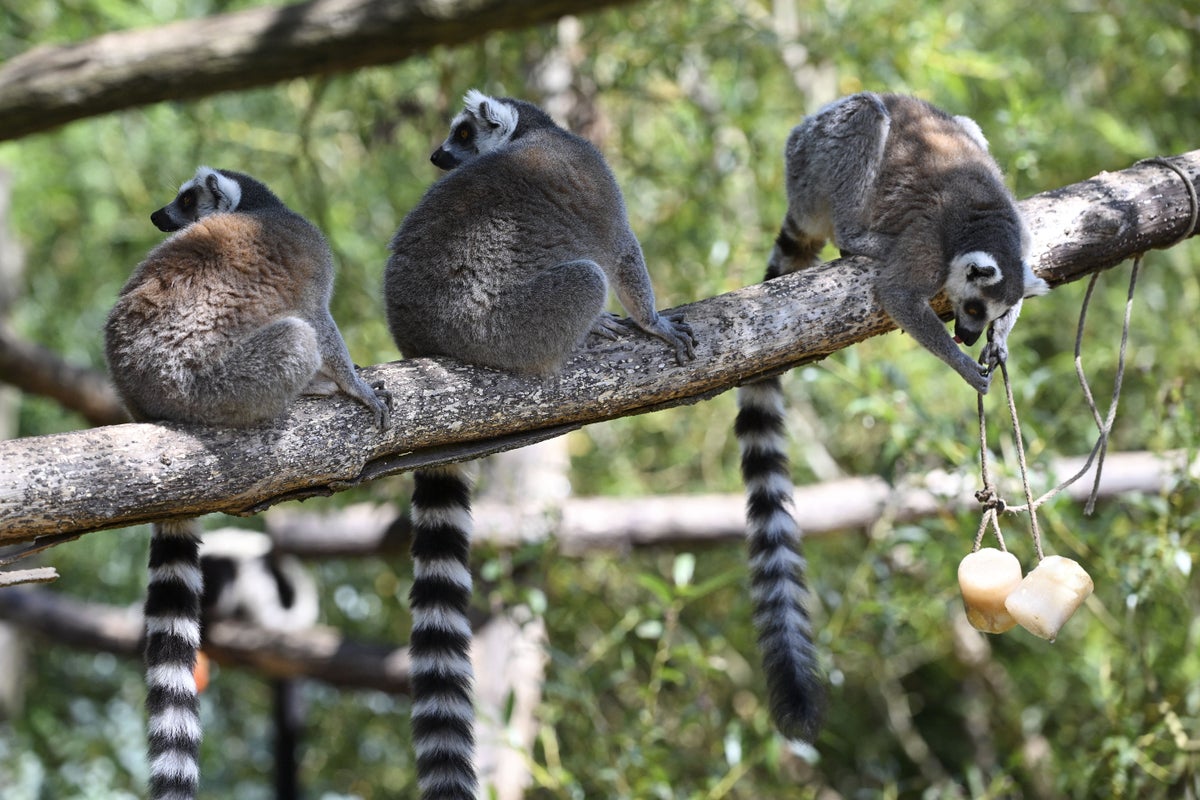
Global warming and deforestation are driving monkeys, lemurs and other predominantly tree-dwelling primates more frequently to the ground for food, water and shelter, according to a new study.
The research, published in the journal PNAS on Monday, warned this change could put tree-dwelling species at higher risk due to a lack of their preferred food and shelter on the ground.
Scientists, including those from the nonprofit San Diego Zoo Wildlife Alliance (SDZWA) in the US, said these primates may experience more negative interaction with humans and domestic animals as the world warms and may undergo a change in their dietary habits.
In the study, an international team of scientists assessed more than 150,000 hours of observation data on 15 lemur species and 32 monkey species at 68 sites in the Americas and Madagascar.
Researchers estimated the influence of several factors such as potential human-induced and ecological pressures, as well as species-specific traits, on the time spent on the ground by these arboreal primates.
“This study began with a discussion among colleagues about how we’d noticed certain populations of arboreal primates spending more time on the ground, yet at sites with relatively less disturbance, members of the same species may never descend to the ground,” study co-author Timothy Eppley from SDZWA said in a statement.
Scientists found that the primates, which lived in hotter environments and with less canopy cover, largely adapted by shifting to extensive ground use.
But the monkeys and lemurs living closer to human infrastructures are less likely to descend to the ground, researchers added, suggesting human presence may interfere with the adaptability of these species to climate change.
The findings also suggested primates consuming less fruit and living in large social groups are more likely to descend to the ground.
Scientists suspect these traits may be a potential “pre-adaptation” to ground-based living.
With the worsening climate crisis and diminishing tree habitats, researchers said primates consuming a more generalised diet and living in larger groups may more easily adapt to a ground-based lifestyle.
Spending more time on the ground may likely “cushion” some primates from the effects of forest degradation and global warming, they said.
However, scientists cautioned that for less-adaptable species, fast and effective conservation strategies will be essential to ensure their survival.
“Though similar ecological conditions and species traits may have influenced previous evolutionary shifts of arboreal primates, including hominins, to ground living, it is clear that the current pace of deforestation and climate change puts most primate species in peril,” said Giuseppe Donati, another co-author of the study from Oxford Brookes University.
Source link
